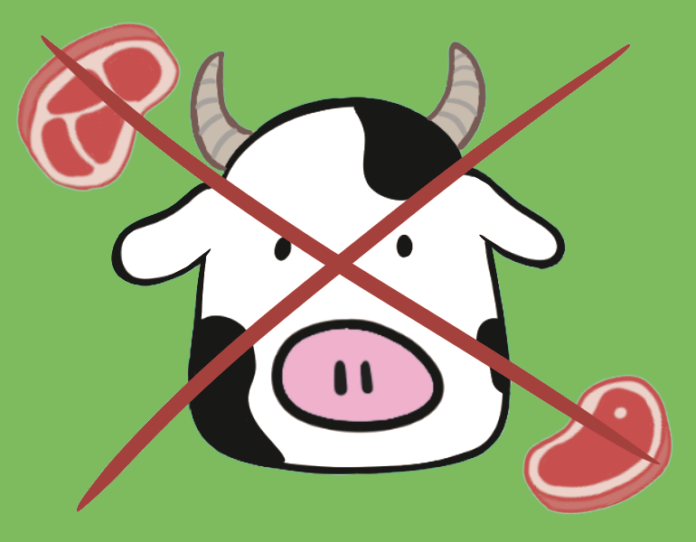Consider reducing your animal product consumption
By EMILIE BROWN — emrbrown@ucdavis.edu
There are a variety of reasons why you should consider switching to a vegan or vegetarian diet — let’s dive right in.
The impact of meat and animal product consumption on our planet is huge, and cutting these products out of your diet can help reduce your personal carbon footprint.
The meat and dairy industries are responsible for 25-30% of greenhouse gas emissions, and those emissions are one of the main drivers of climate change. Cows in particular produce methane (as we have all smelled here in Davis), which is one of the most dangerous greenhouse gasses — it is 25 times more potent than carbon dioxide. And 37% of all methane emissions come directly from cattle. No one likes climate change, but few realize the positive impact our dietary choices can make in slowing it. I believe that cutting red meat out of your diet is a valuable step we can all take to lower carbon emissions.
Meat and dairy production is also the number one cause of deforestation worldwide, accounting for 41% of deforestation globally and 80% of Amazon deforestation. Deforestation leads to the loss of diverse animals, more climate change, economic losses and irreversible damage to the biomes and ecosystems we love.
Additionally, research has shown that it takes 1,847 gallons of water to make one pound of beef. That’s enough water to sustain 78 people for a month. It also takes 2.5 pounds of grain to produce that same pound of beef. Additionally, 60% of the world’s agricultural land is used to grow food for meat and animal product production, all of which could be used to feed people instead. The meat and animal product industries today are completely unsustainable.
Another reason to go vegetarian or vegan is because of ethical concerns. Researchers have observed fear, grief and empathy in many animals, which are sometimes kept in terrible conditions. Pigs in particular have been observed to have about the same emotional and cognitive capacities as dogs.
The good news is that there’s an easy way to help curb the negative effects of meat and animal product production: reduce or eliminate these products from your diet. Going vegan (cutting out all animal products) reduces your carbon footprint by up to 73%, which has positive effects on the planet and future generations.
Some people object to becoming vegan or vegetarian because they say that people need meat to survive, but that’s simply not true. Going vegan or vegetarian significantly reduces your chance of developing heart disease (the leading cause of death in the U.S.), diabetes and even some types of cancer. It’s commonly misunderstood that vegan and vegetarian diets lack essential nutrients found in meat-based diets, but this is also untrue — it’s possible, and even easy, to get all the nutrients you need through a vegan or vegetarian diet. Beans, spinach and dark chocolate all have more iron than beef, almond milk often has more calcium than cow’s milk and edamame, tofu and mushrooms have more protein than most meat.
So, what are you waiting for? You can make a huge positive impact on your planet and your future by changing your eating habits now.
Written by: Emilie Brown — emrbrown@ucdavis.edu
Disclaimer: The views and opinions expressed by individual columnists belong to the columnists alone and do not necessarily indicate the views and opinions held by The California Aggie.




